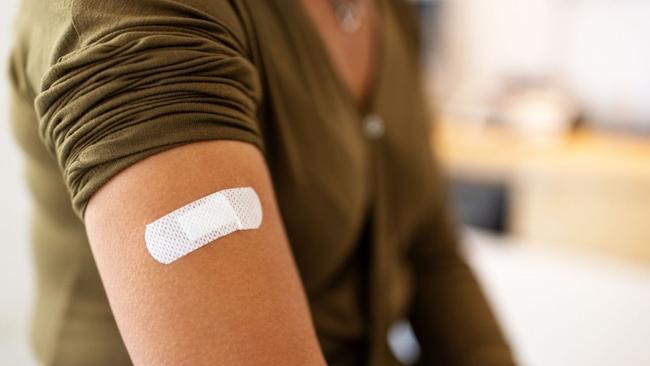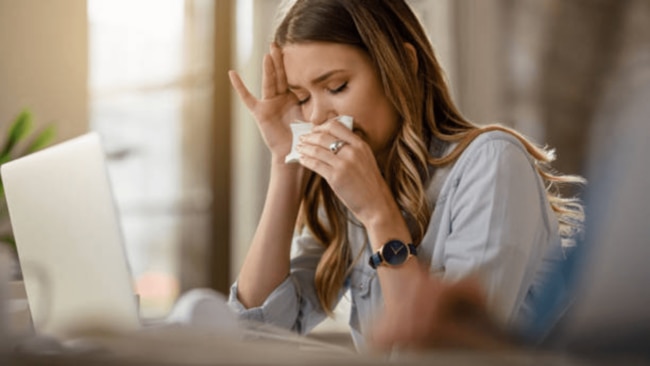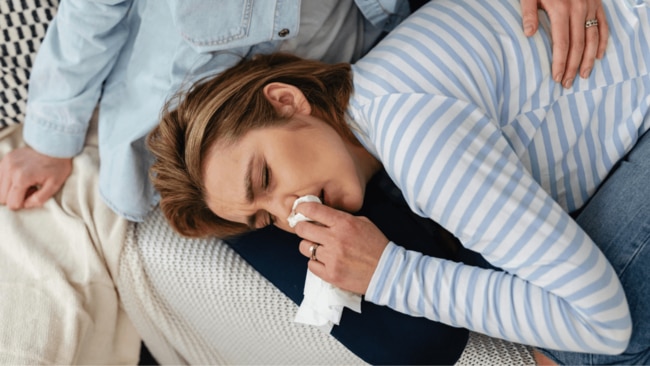This is the best time of year to get your flu shot
Protect yourself and others

Lifestyle
Don't miss out on the headlines from Lifestyle. Followed categories will be added to My News.
In this article
Grave predictions for this year's flu season
Why and when health experts recommend you get the vaccine
The eligibility guidelines for flu vaccines
As we head into cold and flu season, here’s what you need to know about preparing your health, according to the experts.
While it can be common to hear people brush off the flu (otherwise known as the Influenza virus) as a minor illness, the reality can be much different.
“The flu can be deadly,” says Acting Chief Health Officer, Dr David Lister.
“It's a virus that starts with respiratory symptoms, but it really spreads and affects the whole body. You can feel incredibly unwell. You can have fever, muscle aches, tiredness and end up in bed for a number of days,” adds Dr Julianne Bayliss, CSL Seqirus Vaccines Medical Director.
“For some people, flu can mean going to hospital, ICU and in some cases, even death.”

And the impact of the flu is significant. According to modelling estimates, the flu causes 18,000 hospitalisations, 300,000 doctor visits, 1.5 million missed workdays and over 2,800 deaths every year in Australia says Dr Bayliss.
“It's more serious than a cold where you might have a stuffy nose and a sore throat,” she says - and isn’t a virus to underestimate.
So with that in mind, we asked the experts everything you need to know about the flu vaccine, including when is the best time to get it, how long it lasts, and who needs it most.

Getting vaccinated: When and why
While flu season doesn’t usually start until around June, already this year, nearly 30,000 laboratory-confirmed cases of flu have been recorded across Australia.
“That's the most that we've ever seen in the first three months of the year,” says Dr Bayliss. These statistics are alarming, but the good news is that through vaccination, the flu is preventable.
“Getting vaccinated is the best thing you can do to protect yourself and those around you,” says Dr Lister.
As for when to get one, Dr Lister recommends from mid-April onwards.
This gives “optimal protection during the peak of the influenza season, which is typically June to September," he says. “However, it is never too late to be vaccinated, because influenza can circulate all year."

Why do you need a flu vaccine every year and what does it protect you from?
Influenza is not only a dangerous virus but a smart one too, evolving into new strains to try and evade the human immune system.
“The influenza virus changes throughout the year… As it changes, your immune system may not recognise it,” says Dr Lister.
“This is why a new vaccine is developed every year which includes protection against four strains of the flu virus…which is why it’s critically important to get vaccinated every year,” he says.

How long does the flu vaccine last for?
The vaccine offers optimal protection against the flu within the first 3-4 months following vaccination but there is some data that demonstrates that flu vaccines can last for up to 12 months.
However, some people may need more than one flu vaccine each year. These include:
- Children less than 9 years receiving their flu vaccine for the first time require 2 doses 4 weeks apart for an adequate immune response.
- People who have had a haematopoietic stem cell transplant or solid organ transplant and are receiving the flu vaccine for the first time after transplant.
- Pregnant women who received an influenza vaccine in 2023, are recommended to receive the 2024 vaccine if available before the end of pregnancy.
- Women who receive an influenza vaccine before becoming pregnant; revaccination during pregnancy maximises the protection of the mother and infant in the first six months of life.
- Overseas travellers, who may benefit from a second dose of this season’s flu vaccine if going to the northern hemisphere winter and receiving the northern hemisphere formulation there is not feasible.

Who should prioritise getting the flu vaccination?
While most people can and should get the flu vaccine, there are some groups of the population more at risk of complications from Influenza and for these groups the seasonal influenza vaccine is free.
Those eligible for a free vaccine include:
- Children aged six months to less than five years old
- Pregnant women at any stage of pregnancy (it is safe during pregnancy and while breastfeeding)
- First Nations people aged 6 months and over
- People aged 65 years and over
- People aged six months and over with certain medical conditions that increase their risk of severe influenza and its complications.

Cell-based flu vaccines which are designed to match the virus strains likely to be prevalent for the upcoming flu season, as determined by the World Health Organisation (WHO) have been available in Australia for some years now, but this year, for the first time, a cell-based flu vaccine will also be available on the National Immunisation Program (NIP).
“This means that eligible Australians aged five to 64 years old, including Aboriginal and Torres Strait Islander peoples, pregnant women and people with specific medical conditions, will be able to receive the vaccine for free,” says Dr Bayliss.
If you’re thinking about getting your flu vaccine, talk to your GP, pharmacist or nurse immuniser and understand which flu vaccine is the right one for you (because there are different types).
You may be eligible for vaccination under the NIP and even if you're not, there are a number of options that are available to suit your needs.
Click here, to find out if you’re eligible for an NIP vaccine.
More Coverage
Originally published as This is the best time of year to get your flu shot





